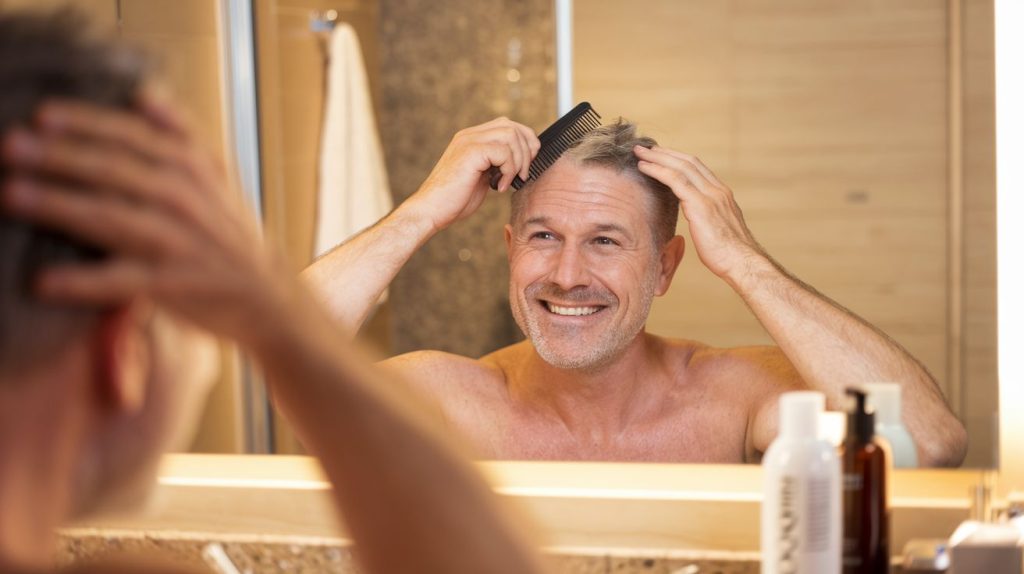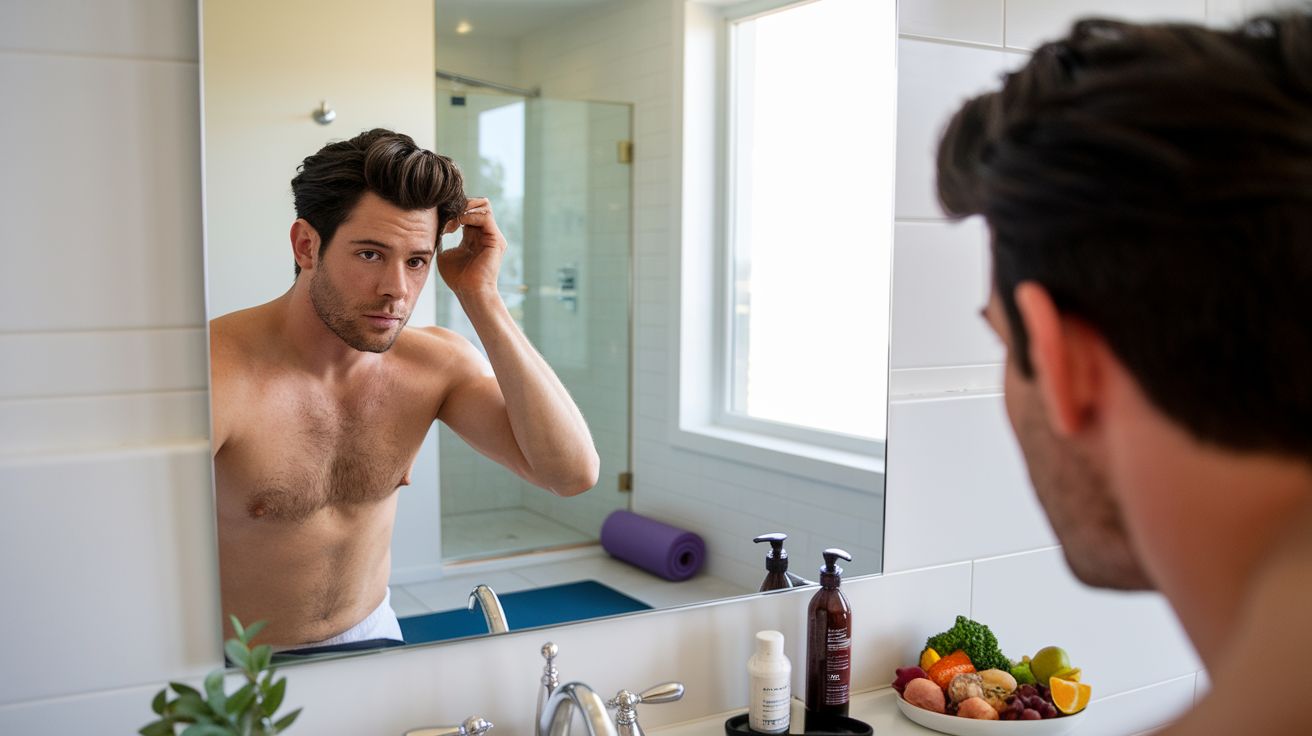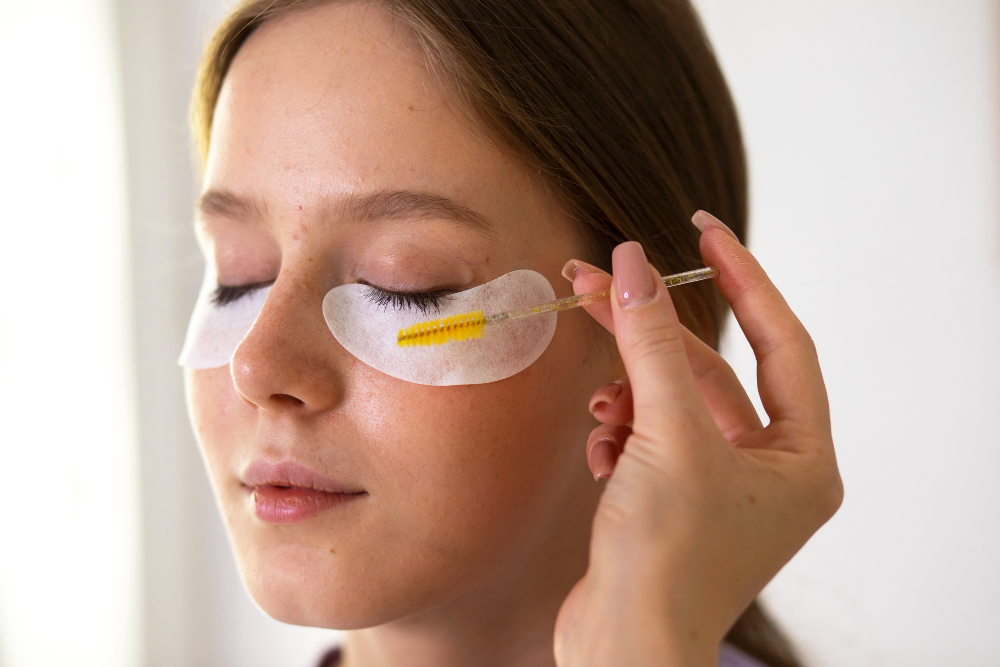Are you tired of finding more hair in your brush than on your head? 😱 Hair loss can be a distressing experience, affecting not just your appearance but also your self-confidence. Whether you’re noticing a receding hairline or thinning patches, the sight of falling strands can be enough to make anyone panic.
But here’s the good news: you’re not powerless against hair loss. There are proven strategies to help you maintain a full, healthy head of hair. From nourishing your locks from the inside out to exploring cutting-edge medical treatments, this blog post will unveil 5 effective ways to prevent hair loss and keep your crowning glory intact.
Ready to take control of your hair health? Let’s dive into the essential steps you can start implementing today to combat hair loss and promote stronger, more resilient hair. Whether you’re looking for natural remedies or considering professional interventions, we’ve got you covered with practical tips and expert advice.
Maintain a Healthy Diet for Strong Hair
Essential nutrients for hair health
A balanced diet is crucial for maintaining healthy hair. Here are the key nutrients that play a vital role in hair health:
- Protein: The building block of hair
- Iron: Helps carry oxygen to hair follicles
- Vitamin C: Aids in iron absorption and collagen production
- Biotin: Promotes keratin production
- Omega-3 fatty acids: Supports scalp health
- Zinc: Helps with hair tissue growth and repair
Foods that promote hair growth
Incorporating these nutrient-rich foods into your diet can help prevent hair loss and promote growth:
| Food Group | Examples |
|---|---|
| Proteins | Lean meats, fish, eggs, legumes |
| Iron-rich | Spinach, lentils, tofu, fortified cereals |
| Vitamin C | Citrus fruits, strawberries, bell peppers |
| Biotin | Nuts, seeds, sweet potatoes, avocados |
| Omega-3 | Fatty fish, chia seeds, flaxseeds |
| Zinc | Oysters, pumpkin seeds, whole grains |
Supplements to consider
While a balanced diet is ideal, some may benefit from supplements:
- Multivitamin with iron
- Biotin supplements
- Omega-3 fish oil capsules
- Vitamin D (if deficient)
Remember to consult with a healthcare professional before starting any new supplement regimen. With a nutrient-rich diet in place, let’s explore how managing stress levels can further contribute to preventing hair loss.
Manage Stress Levels
A. Impact of stress on hair loss
Stress can significantly contribute to hair loss through various mechanisms. When under stress, the body releases cortisol, a hormone that can disrupt the hair growth cycle. This disruption can lead to:
- Telogen effluvium: A condition where hair follicles prematurely enter the resting phase
- Alopecia areata: An autoimmune disorder causing patchy hair loss
- Trichotillomania: A stress-induced habit of pulling out one’s own hair
| Stress-related hair loss | Description | Reversibility |
|---|---|---|
| Telogen effluvium | Temporary shedding | Often reversible |
| Alopecia areata | Patchy baldness | Can be reversible |
| Trichotillomania | Self-induced hair pulling | Requires behavioral therapy |
B. Effective stress-reduction techniques
Implementing stress-reduction techniques can help mitigate hair loss:
- Meditation and mindfulness
- Regular exercise
- Deep breathing exercises
- Yoga or tai chi
- Engaging in hobbies or enjoyable activities
C. Importance of quality sleep
Quality sleep is crucial for managing stress and promoting healthy hair growth. Poor sleep can exacerbate stress levels and disrupt hormonal balance, potentially leading to hair loss. To improve sleep quality:
- Establish a consistent sleep schedule
- Create a relaxing bedtime routine
- Optimize your sleep environment
- Limit screen time before bed
- Avoid caffeine and alcohol close to bedtime
By addressing stress and prioritizing quality sleep, you can create a more favorable environment for hair growth and overall well-being. Next, we’ll explore gentle hair care practices that can further support healthy hair.
Use Gentle Hair Care Practices
Proper washing and drying techniques
To prevent hair loss, it’s crucial to adopt gentle hair care practices, starting with proper washing and drying techniques. Use lukewarm water when washing your hair, as hot water can strip away natural oils and damage the scalp. Gently massage shampoo into your scalp using your fingertips, avoiding harsh scrubbing. Rinse thoroughly and apply conditioner from mid-length to ends, avoiding the scalp.
When drying, pat your hair gently with a microfiber towel or soft cotton t-shirt instead of rubbing vigorously. Allow your hair to air dry whenever possible, or use a blow dryer on a low heat setting, keeping it at least 6 inches away from your hair.
Avoiding harsh chemicals and heat styling
Minimize the use of chemical treatments and heat styling tools to protect your hair from damage and breakage. If you must use heat styling, always apply a heat protectant product beforehand.
| Chemical Treatments | Heat Styling Tools |
|---|---|
| Hair dyes | Flat irons |
| Perms | Curling irons |
| Relaxers | Hot rollers |
| Bleaching | Blow dryers |
Choosing the right hair products
Select hair care products that are free from harsh chemicals and sulfates. Look for ingredients like biotin, keratin, and natural oils that nourish and strengthen hair. Consider using products specifically designed for thinning hair or hair loss prevention.
Regular scalp massages
Incorporate regular scalp massages into your hair care routine to improve blood circulation and stimulate hair follicles. Use your fingertips to gently massage your scalp in circular motions for 5-10 minutes daily. You can enhance the benefits by using natural oils like coconut, jojoba, or castor oil during the massage.
- Benefits of scalp massages:
- Increases blood flow to hair follicles
- Reduces stress and tension
- Distributes natural oils evenly
- Promotes hair growth and thickness
By implementing these gentle hair care practices, you can significantly reduce the risk of hair loss and promote healthier, stronger hair. Next, we’ll explore medical treatments that can complement these practices for those experiencing more severe hair loss.
Explore Medical Treatments
A. Topical medications (e.g., Minoxidil)
Minoxidil is a widely used over-the-counter treatment for hair loss. Applied directly to the scalp, it works by increasing blood flow to hair follicles and prolonging the growth phase of hair. Available in both 2% and 5% concentrations, Minoxidil is most effective for treating male and female pattern baldness.
B. Oral medications (e.g., Finasteride)
Finasteride is a prescription medication that inhibits the production of dihydrotestosterone (DHT), a hormone linked to hair loss. It’s primarily used to treat male pattern baldness and has shown significant results in slowing hair loss and promoting regrowth.
C. Low-level laser therapy
This non-invasive treatment uses red light to stimulate hair follicles and promote growth. It’s available through various devices, including combs, caps, and headbands. While research is ongoing, many users report positive results with consistent use.
D. Hair transplant options
For those seeking a more permanent solution, hair transplantation offers promising results. Two main techniques are available:
| Technique | Description | Pros | Cons |
|---|---|---|---|
| FUT (Follicular Unit Transplantation) | Large strip of hair is removed and divided into individual grafts | More grafts in a single session | Leaves a linear scar |
| FUE (Follicular Unit Extraction) | Individual follicles are extracted and transplanted | Minimal scarring, quicker recovery | More time-consuming, potentially more expensive |
When considering medical treatments, it’s crucial to consult with a dermatologist or trichologist to determine the most suitable option for your specific case of hair loss. These professionals can provide personalized advice and monitor your progress throughout the treatment process.
Adopt a Healthy Lifestyle
Regular exercise for improved circulation
Regular exercise not only benefits your overall health but also plays a crucial role in preventing hair loss. By improving blood circulation, exercise ensures that your hair follicles receive the necessary nutrients and oxygen for healthy growth. Here’s how exercise impacts hair health:
- Increases blood flow to the scalp
- Reduces stress, a common cause of hair loss
- Balances hormones that affect hair growth
- Enhances overall body function, including hair follicles
Try incorporating these exercises into your routine:
- Scalp massages
- Yoga inversions
- Jogging or brisk walking
- Swimming
| Exercise Type | Benefits for Hair Health |
|---|---|
| Cardiovascular | Improves blood circulation |
| Strength Training | Balances hormones |
| Yoga | Reduces stress and improves blood flow |
| Scalp Exercises | Directly stimulates hair follicles |
Quitting smoking and limiting alcohol consumption
Both smoking and excessive alcohol consumption can significantly impact hair health. Quitting smoking and moderating alcohol intake can lead to noticeable improvements in hair growth and quality.
Maintaining hormonal balance
Hormonal imbalances often contribute to hair loss. Maintaining a healthy hormonal balance through diet, exercise, and stress management can help prevent hair thinning and promote growth.
Staying hydrated
Proper hydration is essential for overall health, including the health of your hair. Drinking adequate water helps flush out toxins and ensures that your hair follicles receive the hydration they need to function optimally.
Now that we’ve explored lifestyle changes for preventing hair loss, let’s delve into some medical treatments that can complement these natural approaches.

Hair loss can be a distressing experience, but there are several effective ways to combat it. By maintaining a healthy diet rich in essential nutrients, managing stress levels through relaxation techniques, and adopting gentle hair care practices, you can significantly reduce hair loss. Additionally, exploring medical treatments with a professional and embracing a healthy lifestyle that includes regular exercise and adequate sleep can further strengthen your hair and promote growth.
Remember, preventing hair loss is a holistic process that requires patience and consistency. By implementing these five strategies into your daily routine, you can take proactive steps towards maintaining a healthy, full head of hair. Don’t hesitate to consult with a dermatologist or trichologist if you have concerns about excessive hair loss, as they can provide personalized advice and treatment options tailored to your specific needs.




